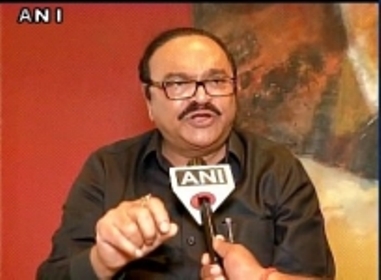Why the Chhagan Bhujbal Story Should Worry Us
- In Politics
- 08:23 PM, Apr 19, 2016
- Shailendra Marathe
The Maharashtra Deputy CM for six years across two disjointed terms, Home Minister for 4 years, and Minister of Public Works for 10 years, Chhagan Bhujbal, is in jail for over four weeks now[i]. The Enforcement Directorate, which submitted 11,000 page charge-sheet against Bhujbal and others, appears to be building a water-tight case[ii]. The average Maharashtra voter has reasons to be happy that a corrupt leader has been jailed, but the overall reaction appears to be cautious, given the long history of corrupt politicians escaping jail terms. The case filed in 2012 against former Maharashtra Cabinet Minister and ex-Chief of Mumbai Congress, Kripashankar Singh, on orders of the Mumbai High Court, doesn’t appear to have made any progress in last four years[iii]. Incidentally, both Chhagan Bhujbal and Kripashankar Singh were vegetable sellers in their early days and made it a point to advertise their humble beginnings as they progressed in politics.
Rise of the Grass-root Worker
Chhagan Bhujbal joined Shiv Sena in 1960 as a ‘Shakha Pramukh’. He toiled a lot as a party worker, and moved up only in 1973, when he was elected as a Corporator, and later as Mayor of Mumbai in 1985. He positioned himself as a leader of OBCs with humble background, and built cross-party alliances with other OBC leaders across parties[iv]. A large number of state level politicians across political parties and states in India have much in common with this aspect of Bhujbal- upward mobility from the poor class, through active politics and hard work.
Move to Congress Party- Identity Politics
Chhagan Bhujbal left the Shiv Sena and moved to Congress in 1990 due to his unhappiness with appointment of Manohar Joshi as the leader of opposition in the Maharashtra assembly[v]. Bhujbal’s own identity as a OBC leader and his venomous politics against Brahmins made it impossible to work in a party where a Brahmin could rise to a senior position on merit (like he himself rose). Once you use identity politics as an essential tool for your politics, confrontation on the basis of your caste, creed, religion or language becomes inevitable at some point in time. It is no surprise or a coincidence that he was pulled into Congress by Sharad Pawar, another leader who played anti-Brahmin identity politics, and made it into a fine art in next two decades.
Move to NCP- Caste Politics
Bhujbal is known to openly attack the entire Brahmin community and paint them as villains responsible for all wrongs, real or imagined. In a state which was at the forefront of equal right for all regardless of caste, in the beginning of the 20th century, a hundred years later, anti-Brahmin rants came handy as a means of combining forces, regardless of track record of corruption, nepotism and administrative failures. Bhujbal made sure he openly communicated his hatred for certain caste to garner votes and firm up his position as an OBC leader.
Caste Politics- The Armor
Despite of corruption allegations against Bhujbal, NCP appointed him as a Cabinet Minister in 2004, since in Indian politics, the “allocation” of ministerial births must also ensure balancing of ‘caste representation’. This decade long tenure as Minister of Public Works provided Bhujbal with an opportunity to manipulate award of works contracts, as alleged in the ED’s investigation and charges. Identity politics has for decades provided shield to a large number of politicians against any investigation into and prosecution for offenses for which they could otherwise be jailed. Bhujbal can’t be faulted for assuming that his caste leader identity will shield him from being treated as equal in the eyes of law. After all, Babu Jagjivan Ram escaped prosecution by merely saying he forgot to file his tax returns for 11 years[vi] and is till date hailed as a mass leader and inspiration!
Is Maharashtra Politics Turning for Better?
Anti- Brahmin plank helped Pawar- Bhujbal consolidate votes in 2004 but the same formula did not work out in 2014 assembly elections[vii]. While NCP leaders were not talking caste politics from the stage and TV studios, ground level campaigns “alerted” voters that a Brahmin may become a Chief Minister of Maharashtra if BJP won large number of seats. Despite this, BJP won the most seats and Shiv Sena was forced into a compromise for the sake of power. Assuming this shift in Maharashtra politics from caste to development is permanent, Bhujbal and his boss Pawar are likely to have tough time ahead.
Whether or not the charges against Bhujbal are proven in the court of law, we should worry about the way Maharashtra’s politics has degraded over last few decades, and hope it doesn’t revert back to the caste politics.







Comments